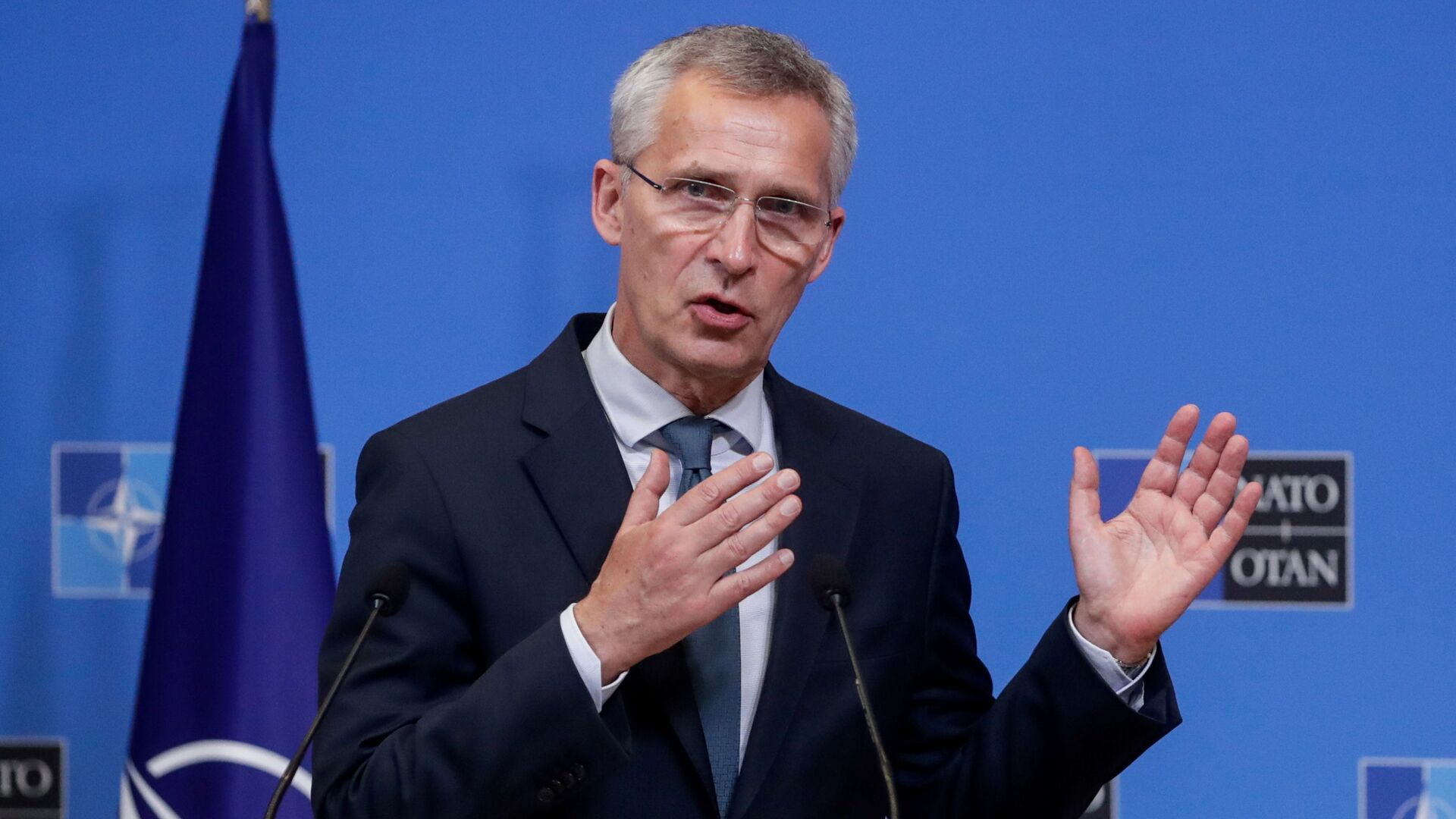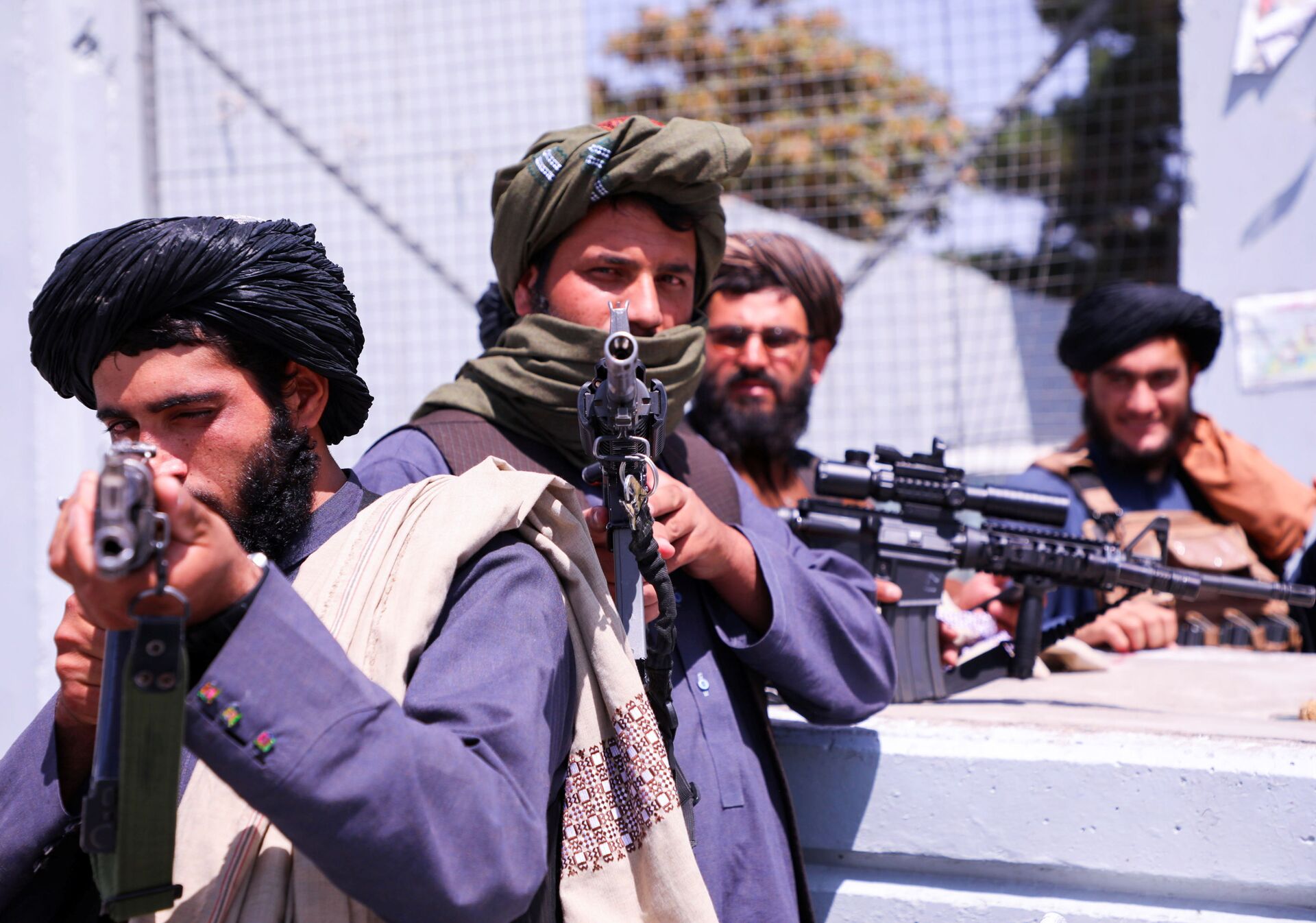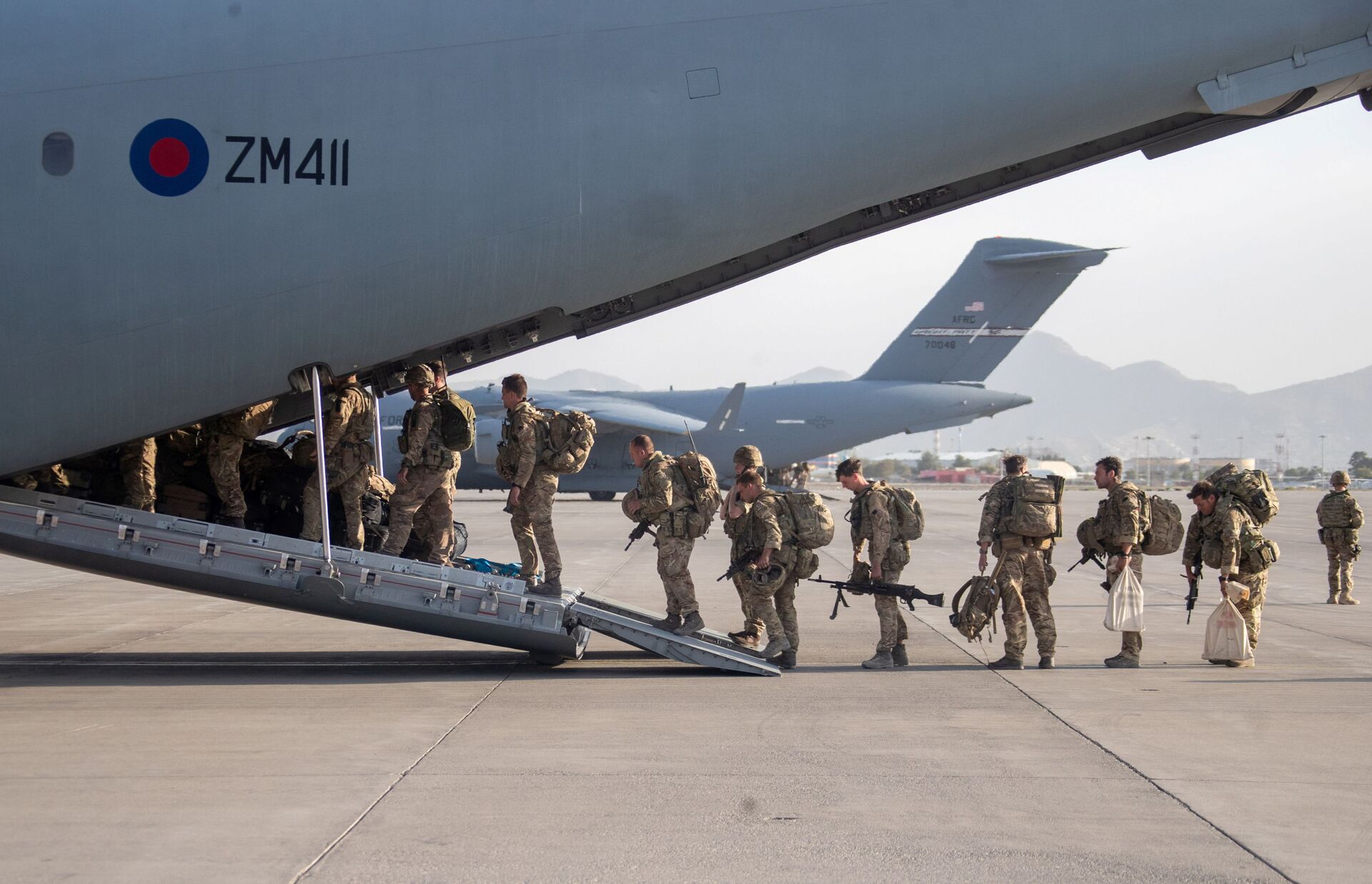NATO Chief Backs Biden Afghan Pullout, Warns It's 'Easier to Start a Military Operation Than End It’

© REUTERS / Stephanie Lecocq
Subscribe
After the debacle in Afghanistan triggered by the precipitous withdrawal of US troops, there have been renewed calls for an EU military force with a genuine “will to act” that could function independently of the US military.
NATO Secretary-General Jens Stoltenberg has pushed back against criticism that European allies were not duly consulted ahead of the abrupt US withdrawal from Afghanistan, which has been slammed by critics as nothing short of a “mistake of historic magnitude”.
NATO gave its unanimous approval for the withdrawal as far back as April, said Stoltenberg in a wide-ranging interview at the alliance’s headquarters on Thursday, cited by The New York Times.
“You see different voices in Europe, and some are talking about the lack of consultation, but I was present in those meetings. Of course the United States consulted with European allies, but at the end of the day, every nation has to make their own decision on deploying forces,” said Stoltenberg.
He conceded that once the United States had opted for a pullout, “it was hard for other allies to continue without the United States. It was not a realistic option.”
In February 2020 then-President Donald Trump had signed a bilateral deal with the Taliban* in Doha, Qatar, that committed the US to withdraw troops from Afghanistan by May 2021. The deal had obliged the Taliban Islamist group to take steps to prevent groups including al-Qaeda* from threatening the security of the US and its allies.
Sources are cited as suggesting Stoltenberg had urged “a conditional withdrawal” of US and NATO forces from Afghanistan, that would have held the Taliban* to their pledge to seek a negotiated political solution with all forces concerned. Stoltenberg stopping short of confirming this, underscoring in the interview that no objections had been voiced by allies regarding the Biden pullout plan taken in April.
“The problem was that the Taliban did not want to negotiate if the government in Kabul was part of those negotiations… We were all aware that this was a difficult decision and we were faced with a difficult dilemma,” said Stoltenberg.
He added that the options at the time were, “threaten to leave and risk the Taliban returning, or to stay, but then with more fighting and more casualties.” Perhaps the speed with which the Taliban would topple the Western-backed government was not anticipated, but everyone understood the risks of pullout, according to Stoltenberg.
The NATO chief defended President Biden’s decision on a rapid withdrawal and the ensuing chaotic evacuation from Kabul after Taliban had seized the capital on August 15. According to the NATO secretary-general, the blame for the lightening-swift deterioration of the situation in the South Asian country lay with the Afghan government. “What we saw was a collapse of the political and military leadership, and that triggered the collapse of the whole defence against the Taliban.”

Taliban forces stand guard in front of Hamid Karzai International Airport in Kabul, Afghanistan
© REUTERS / STRINGER
In the interview, Stoltenberg, who claimed he was “heartbroken to see the Taliban being back,” added that subsequent analysis would consider to what degree the withdrawal of US and NATO forces had brought forward the collapse of the Kabul government.
“My main focus is how we can preserve the gains made in the fight against terrorism and how you get people out of Afghanistan,” he said.
European Army
Jens Stoltenberg weighed in on the recently reemerged calls for a separate European Union military force, claiming it could only weaken the trans-Atlantic alliance.

UK military personnel board an A400M aircraft departing Kabul, Afghanistan August 28, 2021
© REUTERS / UK MOD Crown copyright 2021
“For European allies to go to their parliaments and ask for more money and more soldiers to send into harm’s way in Afghanistan in a mission launched to protect the United States” would have been difficult after Washington decided to leave, conceded Stoltenberg, adding:
“This is about more than European capabilities, this is about deep politics, about what’s reasonable to expect from allies that went in to support the United States.”
The Afghanistan withdrawal may lend fresh urgency to earlier calls by some European leaders, such as French President Emmanuel Macron, pushing for the bloc to pursue a security policy less dependent on America. At Thursday’s informal meeting in Kranj, Slovenia, the EU defence ministers discussed the establishment of a “rapid reaction force” that could also act independently of the US military.
“It’s clear that the need for more European defence has never been as much evident as today after the events in Afghanistan. There are events that catalyse history. Sometimes something happens that pushes history, it creates a breakthrough, and I think the Afghanistan events of this summer are one of these cases,” said EU High Representative for Foreign Affairs and Security Policy Josep Borell after the meeting.
European defence policy will “only be credible if we are also able to launch complex military operations outside our borders”, acting EU Commissioner for Internal Market and Industrial Policy Thierry Breton was cited by Süddeutsche Zeitung as saying.
In the UK, the Afghanistan withdrawal was branded “the biggest foreign policy disaster since Suez”, prompting policymakers to think about “how we handle friends, who matters and how we defend our interests”, according to Tom Tugendhat, the Conservative chair of the British parliament’s foreign affairs committee.
Afghanistan is the biggest foreign policy disaster since Suez. We need to think again about how we handle friends, who matters and how we defend our interests.
— Tom Tugendhat (@TomTugendhat) August 16, 2021
In Kabul we’ve failed our friends and ourselves. We need to think again, fast.https://t.co/9t6x8AdoVm
However, Jens Stoltenberg emphasised on Thursday that “any attempt to weaken the bond between Europe and North America will not only weaken NATO, it will divide Europe itself.” Looking back on the almost 20 years-long US and NATO stint in Afghanistan, Stoltenberg suggested that failures of Western intervention should remind everyone, “how serious it is to use military force and to go into another country”, concluding that “it’s easier to start a military operation than to end it”.
*A terrorist group outlawed in Russia and many other countries.



